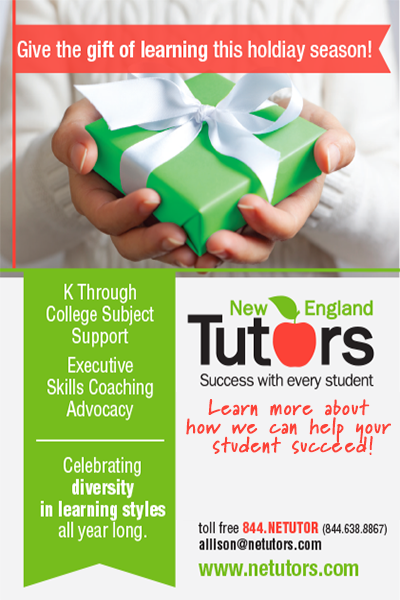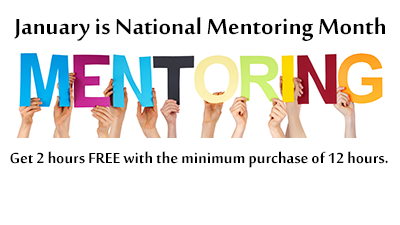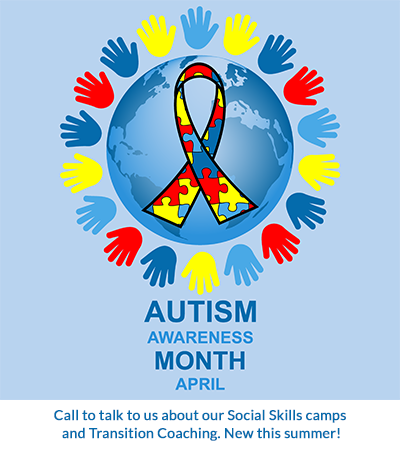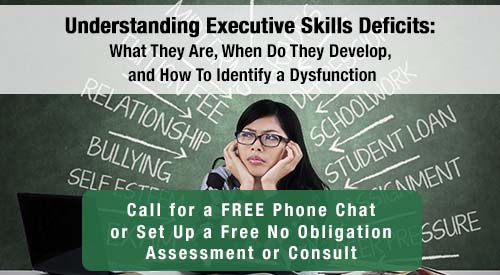In last month’s blog, Part 2 of our Executive Skills series, I promised some more definitions. Here they are. But don’t skip this Part 3 just because I used the word “definition”…it contains important information.

The first important bit of material I want to get into is Barkley’s Theory of ADHD. (Here’s a bio of this distinguished psychologist: http://www.russellbarkley.org/about.html) There are two concepts that I’d like to explore: Contingency-Shaped/Context Dependent Sustained Attention vs. Goal-Directed Persistence.
In the former, a person’s sustained response depends on:
- Novelty
- Intrinsic Reinforcement (Interest) Value
- Extrinsically Provided Consequences
Therefore if the task is:
- Fun
- Interesting
- Immediately Rewarding
then on-task behavior can be sustained. We see this with people who are watching TV, playing video games, and participating in hands-on activities.
Goal Directed Persistence requires a different set of skills. The individual must
- Generate and hold a mental representation of the goal in mind (working memory).
- Formulate a plan and set of rules to follow (self-directed speech).
- Inhibit and regulate negative affect (i.e., disappointment and frustration) associated with self-deprivation.
- Kindle self-motivated or positive drive states in support of the plan (self regulation of affect).
- Experiment with multiple novel approaches toward goal achievement (reconstitution).
Stay with me now!
Therefore the individual with ADHD has diminished self-regulation. Sustained attention is highly context and contingency dependent. Without rewards or interest in the immediate context, work is cut short.
And the individual without ADHD has adequate self-regulation, therefore she or he requires no source of reward or motivation in the immediate context for performance.
At this point, it is important to note that ADHD has a biological cause. A study in the Journal of the American Medical Association (http://jama.jamanetwork.com/article.aspx?articleid=184547) found that there are differences in dopamine processing in the reward pathways in the brains of subjects with ADHD compared to non-ADHD control subjects. Dopamine is an organic chemical that acts as a transmitter of signals. People with ADHD may release dopamine at a lower rate compared to normal controls, or they might have a net dopamine deficit.
Because dopamine enhances the level of interest a person attaches to a stimulus, people who release dopamine at a lower rate might find it more difficult to work up the enthusiasm to act on stimuli they don’t find naturally appealing. The implication is that students with ADHD find it much more difficult to apply themselves to tasks that are not intrinsically interesting to them.
One final piece of research information, brain scans show children with ADHD have a faulty off-switch for mind-wandering. Another reason to assign ADHD to biology and not stubbornness or laziness. So…that was a lot this month, but we had to get some of the background down before I can take you through the breakthroughs that are being developed – and that we are implementing in our work – before I can get to specifics of how to teach Executive Skills to students.
Next month, we’ll get to some strategies that we are teaching and helping others to teach. There is a light at the end of the tunnel…and it’s not a train coming at us.
As always, we welcome your participation, either through blog comments or though other contacts with us. You can help us implement our motto: Success with Every Student.
Want to know more? Interested in the concept? Call us to day to find out more about our Executive Skills Coaching Programs: 844-NETUTOR (844-638-8867).











